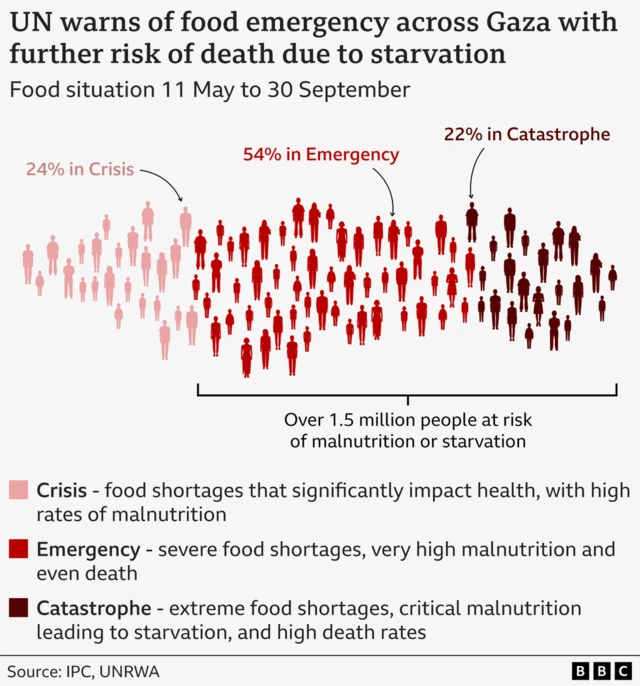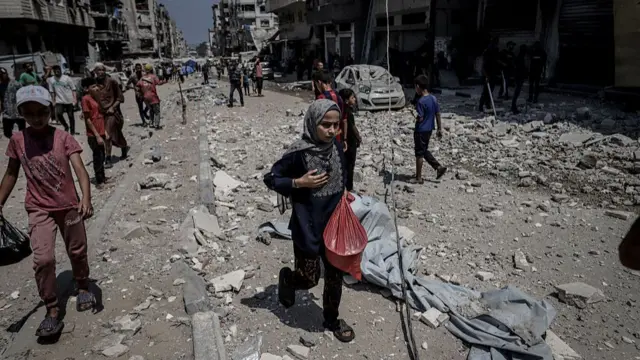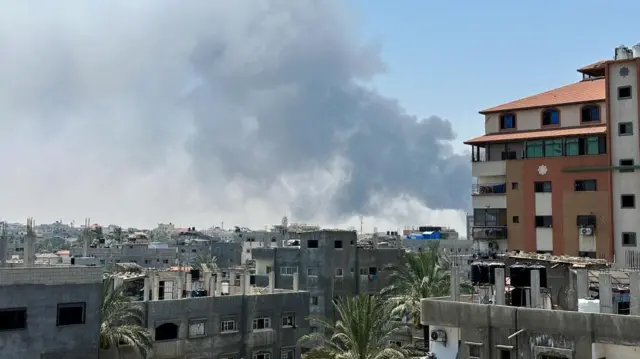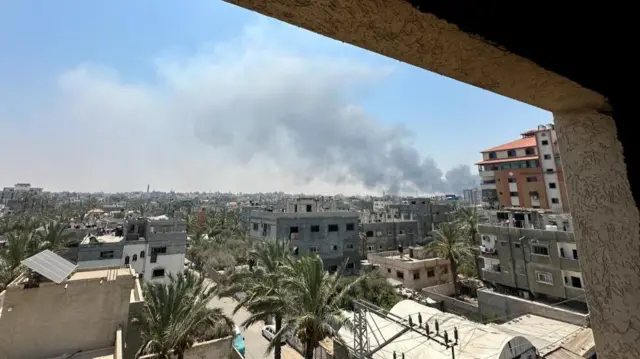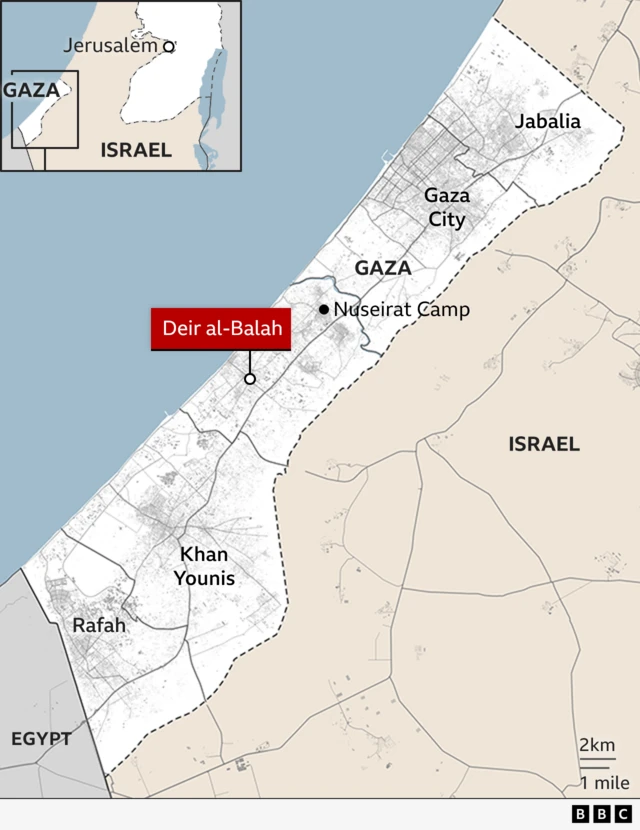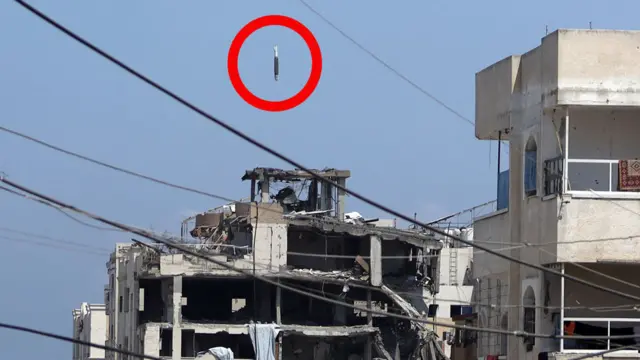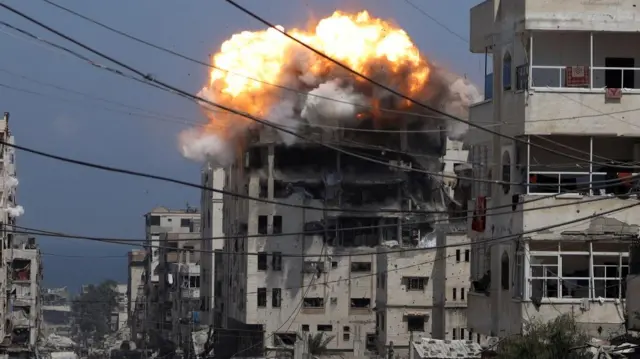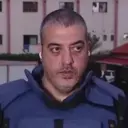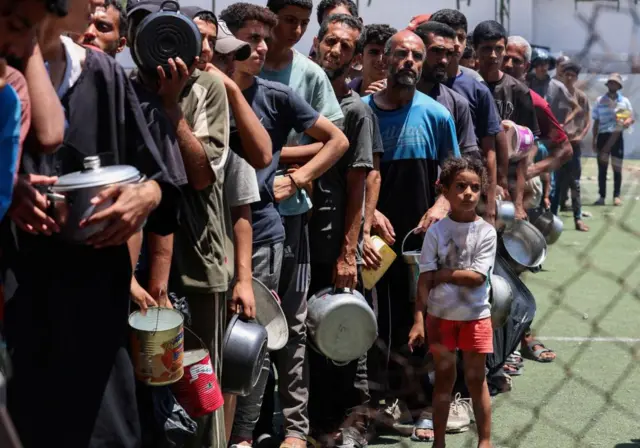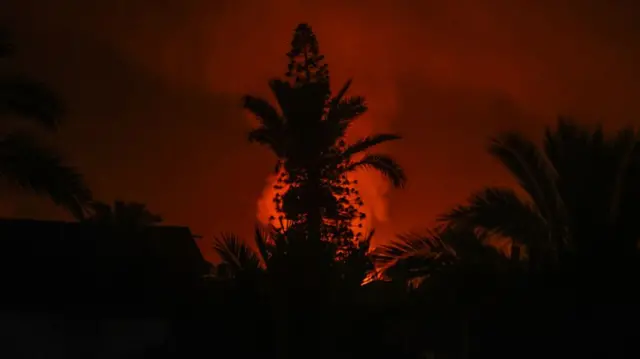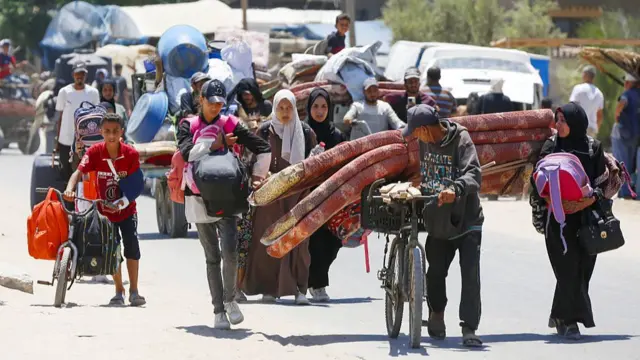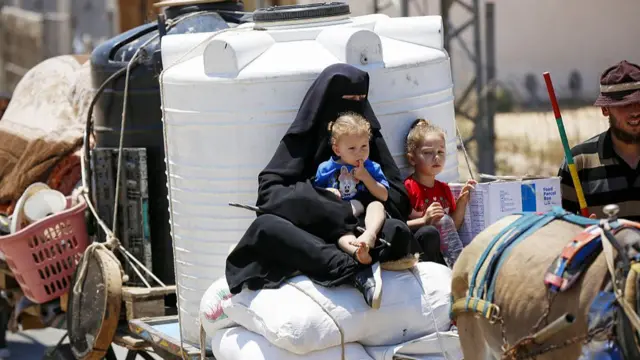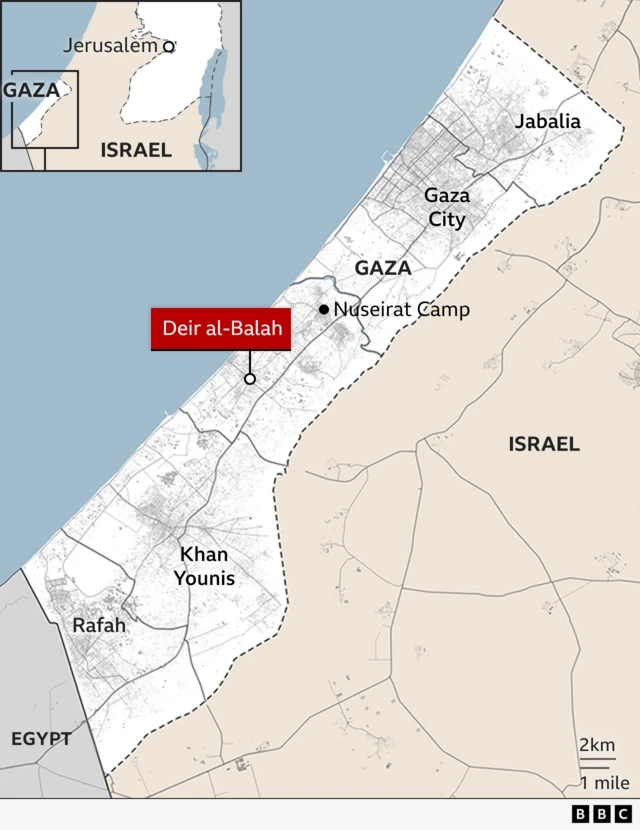'I'm only asking for a piece of bread. That's all'published at 15:14 British Summer Time 21 July
As we've just reported, the UK and more than 20 other nations say the "suffering of civilians in Gaza has reached new depths".
Our colleagues at the World Service have been speaking to sick children at the Al Shifa Hospital in northern Gaza.
One 17-year-old says the hospital is unable to even provide food to its patients, leading to him suffering from severe malnutrition.
He was told by a doctor it is difficult to perform surgery on him because his wounds are not healing properly due to the lack of food.
"He said I need to eat, but how? I can’t even get a piece of bread. I’m not asking for meat or anything expensive. I’m only asking for a piece of bread. That’s all."
One mother at the hospital tells us her son has dropped in weight from 40kg (88lb) to just 10kg.
She says he needs to be treated in intensive care, but Shifa hospital cannot provide the care he needs.
"Right now, there is no fish, no meat, not even milk for the children of Gaza—not just for my son.
"Because of the closure of the crossings, Gaza’s children have become trapped by hunger."
A 15-year-old girl at Shifa says there is a "severe and devastating famine in Gaza" - where a single kilogram of rice now costs more than $75 (£56).
The girl, who had to have her arm amputated, says that if she had access to enough food she would already have left hospital. Instead, she adds, malnutrition has slowed her healing and led to other serious heath problems.
"I’m supposed to be a child, but sadly my childhood has been stolen from me here in Gaza."
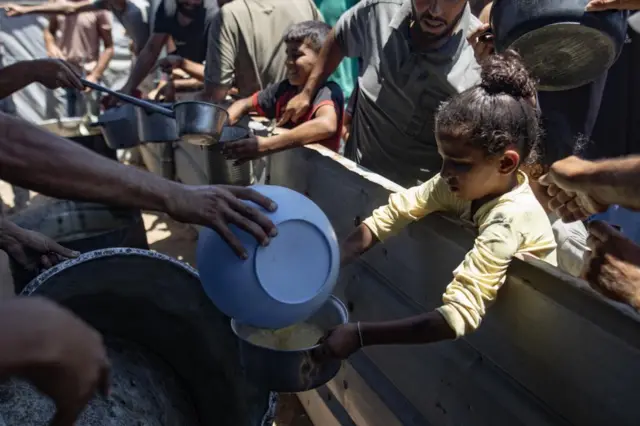 Image source, EPA
Image source, EPAPeople receiving food rations at a charity kitchen in Gaza City on Saturday
